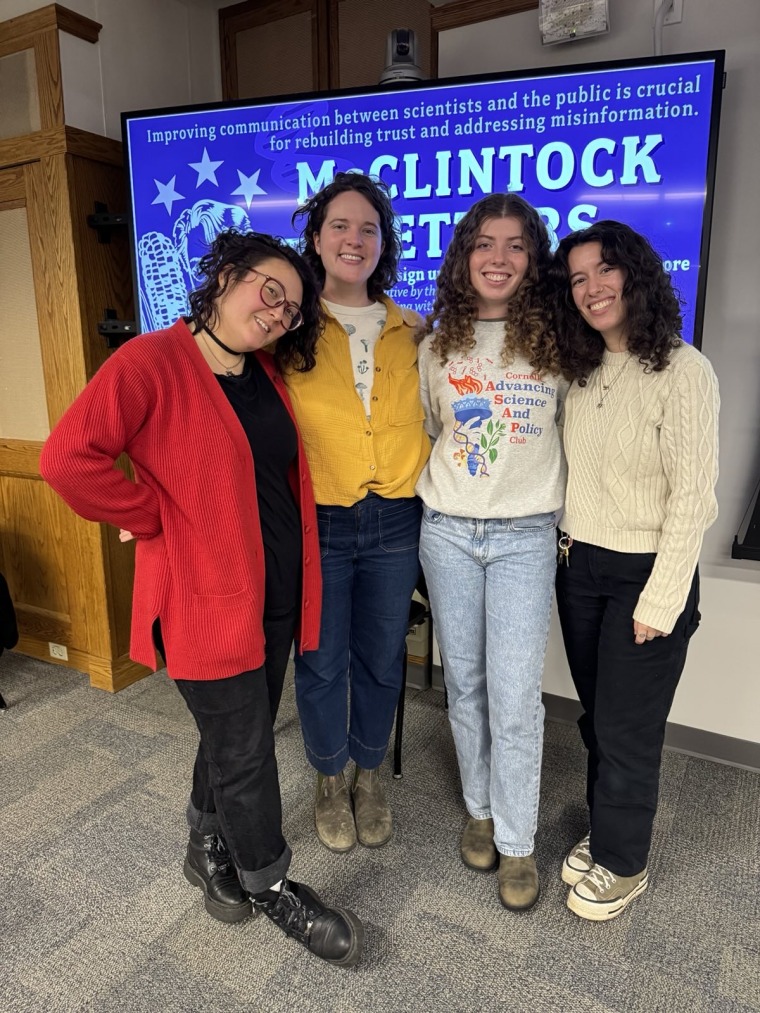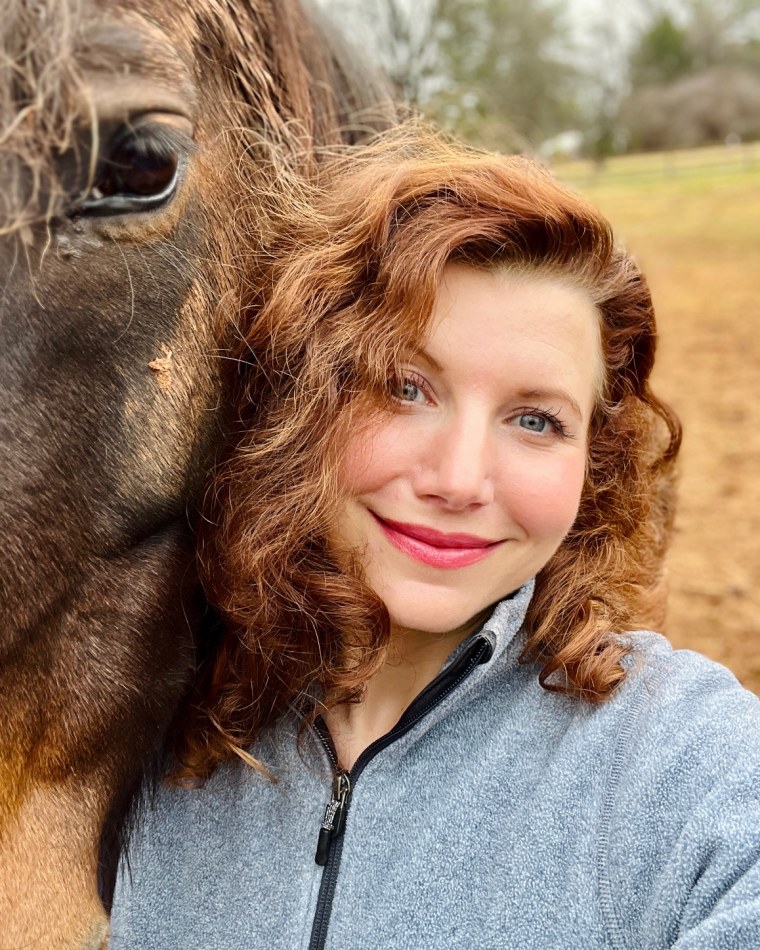Scientists searching for a cure for cancer have no trouble finding public support. But for those studying potato disease, it’s a tougher sell.
The Trump administration seems to have banked on the idea that the public will see much of scientific research as wasteful or arcane. It has slashed — or proposed slashing — billions in research funding.
Faced with this existential crisis, academics are seeking new ways to rally public and political support to fight the cuts and preserve their funding.
Enter a group of Cornell University graduate students with an ambitious plan to change the way people think about science. They have recruited more than 500 researchers across all 50 states to write op-eds for local news outlets, to be published over the next week. The idea, said Emma Scales, a Cornell doctoral student involved in the effort, is to have scientists introduce themselves to the public.
“It’s speaking to people who are angry about not knowing where their money is going,” Scales said. “Like, ‘Hey, I’m one of those people using your money. I’m sorry that we haven’t talked, but let me tell you what I do.’”

The McClintock Letters, as the project is known, is one of several efforts underway by graduate students and faculty members with the same goal in mind.
They reflect a growing recognition that researchers can’t take public support for granted. If they don’t act now, many are starting to realize, public trust in scientists will continue to slide and the funding may never return.
Science Homecoming, a letter-writing campaign, encourages academics to focus on the role government dollars play in science. Stand Up for Science, a new nonprofit, is planning a series of demonstrations at state fairs and farmers markets, along with teach-ins at churches and open lab days this summer. Another new organization, Your Neighborhood Scientist, publishes essays by researchers and tries to encourage community-based conversations about science.
Audrey Drotos, a University of Pennsylvania neuroscience researcher who co-founded Your Neighborhood Scientist, sees efforts like hers as a way for scientists to share their own excitement.
“We don’t want to just add more noise to the system,” she said. “We’re trying to humanize scientists — that’s really the underlying goal.”

The inspiration for the McClintock Letters took root in February, when Isako Di Tomassi, a doctoral student studying plant pathology, vented online about losing her Ph.D. adviser at the U.S. Department of Agriculture after widespread government layoffs this year.
Some online commenters were sympathetic, Di Tomassi said, but one person insisted that the cuts had stopped “stupid research,” and many others expressed confusion as to what universities were even studying. Few seemed to see the value in their work.
Di Tomassi and Scales brainstormed with the Cornell Advancing Science and Policy Club about what to do in response and landed on the idea of having researchers tell their own stories.
They named their effort after Barbara McClintock, the late Cornell cytogeneticist who won a Nobel Prize, and planned it around her birthday, June 16. Her research on the genes in corn changed scientists’ understanding of heredity and laid the foundation for treating genetic defects in humans.

“Barbara McClintock is famous as hell,” Di Tomassi said, “but maybe not to a nonscientist because she studied corn DNA. So most people will be like, ‘Who cares about corn DNA?’”
But that’s exactly the point, Di Tomassi said: bridging the disconnect between what the scientific community knows and what the average person understands. Even mundane-sounding experiments can help fuel medical and scientific breakthroughs, she said.
Researchers have signed up to write about breast cancer metastasis, how memories are formed and sustainable grape-harvesting, among other things. They are on track to reach 8 million potential readers, based on the organizers’ back-of-the-envelope calculations of each news outlet’s audience size.
During a June 6 webinar, Katherine Xue, a microbiologist at the University of California, Irvine, walked some 100 people through how to write an op-ed. She showed them a 2015 op-ed by Newt Gingrich that called for more research funding as a template.
Xue reminded them to avoid jargon and make it personal. She plans to write for a newspaper in her hometown of Oak Ridge, Tennessee, about how a high school internship got her interested in microbiology.
“As scientists, we’re trained to stay impersonal and to take ourselves out of the equation,” Xue told NBC News. But there’s a downside to that approach, she said. “I think a lot of people haven’t met scientists and don’t know a lot about what we do and why, which means it’s easy to distrust science as a whole.”
Recent polling backs up her point. While 76% of Americans have confidence in scientists, that’s down from 87% in 2020, surveys by the Pew Research Center show. Pew also found a majority of Americans believe that scientists are not good communicators, and that nearly half think scientists view themselves as superior to others.
Silly-sounding research projects have long been a political punching bag. Some senators have issued annual reports flagging what they consider wasteful spending on science.
During Trump’s March speech to Congress, he rattled off a list of what he deemed ridiculous projects funded by the Biden administration, including research he incorrectly described as making mice transgender (it actually looked at the role of hormones in health and fertility). The White House defended the president’s remarks.
In response to questions about research cuts, White House spokesman Kush Desai said they were in line with what voters want. “The American people gave President Trump a resounding mandate to realign government spending to better reflect their priorities,” he wrote in an email. “The Administration is committed to delivering on this mandate.”

For her new book, “The Salmon Cannon and the Levitating Frog,” Carly Anne York, an animal behaviorist at Lenoir-Rhyne University in North Carolina, profiled a handful of scientists who have engaged directly with disparagers to defend their research.
One professor profiled in the book responded to mockery of her work as “Shrimp Fight Club” by joining other academics in setting up a mini-science fair on Capitol Hill, where she shared that the research into how shrimp fight had generated interest in designing new types of body armor for humans.

“I wish that more scientists would think that way,” York said. “This is actually our burden to make sure the public understands why their taxpayer dollars go to us, what we do with it, and why what we do matters.”
So will the McClintock Letters or other campaigns work? Students and faculty members planning to participate aren’t sure, but many say that’s not the only goal — and hope they go further.
For Michael Lubell, a physics professor at City College of New York and a former public affairs director for the American Physical Society, their success will depend on whether there’s an ongoing effort to connect with the public.
Lubell said they should meet people in person as well — at Rotary Clubs, churches and temples, or in PTA meetings.
“If you’re going to try to do something and get people to come to you, you’re only going to get a sliver of the population to do that, and I don’t think that’ll move the needle,” he said. “Go where they are — see what they value. You may be surprised.”

